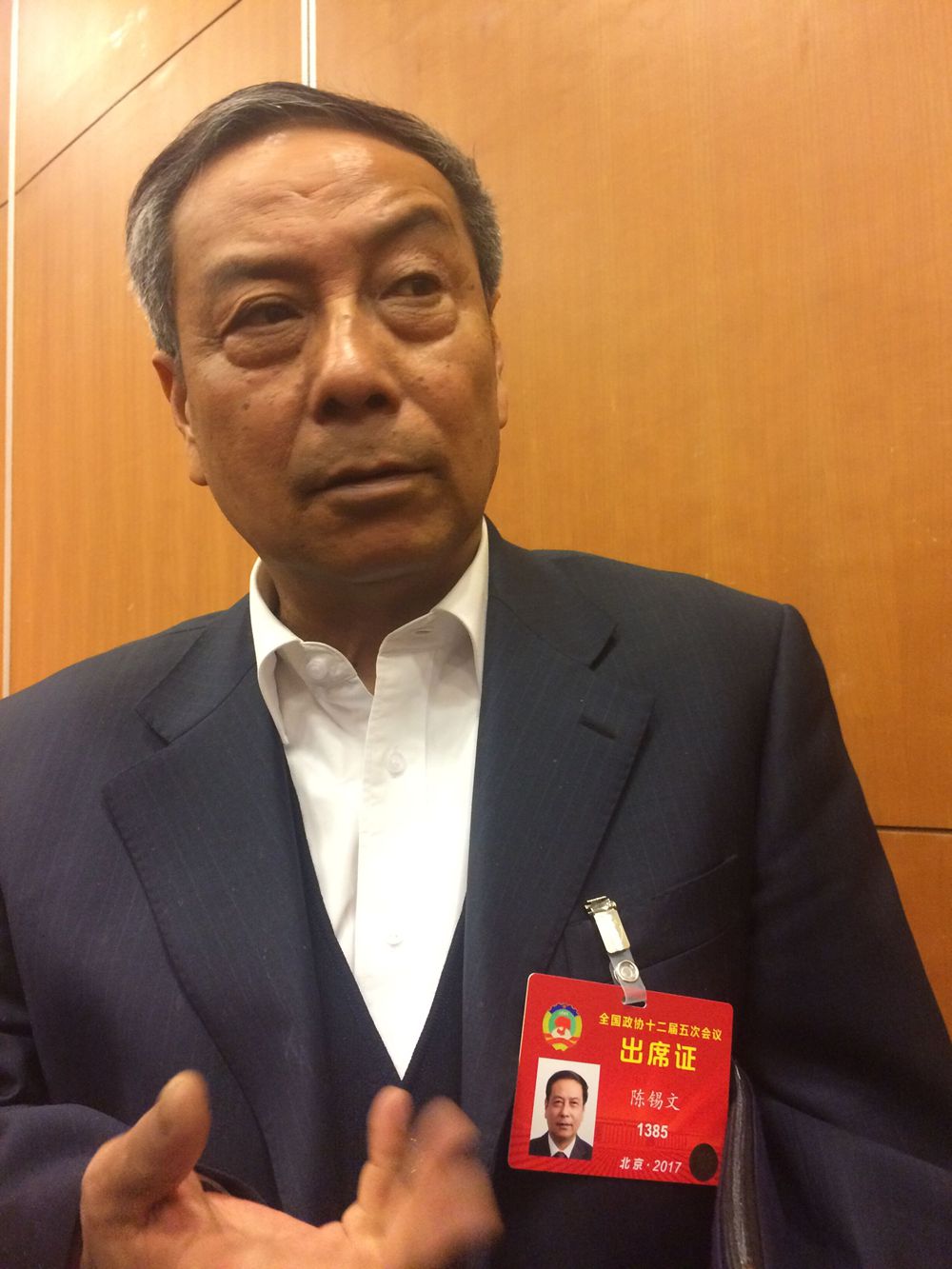More farmers choose to stay in countryside: economist
- By Zhang Rui
 0 Comment(s)
0 Comment(s) Print
Print E-mail China.org.cn, March 13, 2017
E-mail China.org.cn, March 13, 2017
|
|
|
Chen Xiwen, Chinese People's Political Consultative Conference member and deputy office director of the Central Leading Group on Financial and Economic Affairs, speaks to reporters in Beijing, on March 9, 2017. [Photo/ China.org.cn] |
A leading economist has said the declining of number of rural migrants moving to urban areas reflects the fast economic growth of the countryside, encouraging more farmers to develop their careers at home.
"Now rural migrants have more options. They can choose to go to work in urban areas, or choose to stay in the countryside. In addition, we also see urban people going to the countryside to start businesses," said Chen Xiwen, attending the annual session of the National Committee of the Chinese People's Political Consultative Conference (CPPCC) in Beijing due to close on Monday.
Chen is a standing committee member and vice chairman of the Committee for Economic Affairs of the 12th CPPCC National Committee. He is also deputy director and office director of the Central Rural Work Leading Group, and deputy office director of the Central Leading Group on Financial and Economic Affairs.
"There is a gap between urban and rural areas, but it’s shrinking. And the interaction between urban and rural areas is improving. This is really encouraging," he said.
In recent years, the growth rate for rural migrants who went to urban areas to work slowed down sharply for example there was 0.4 percent and 0.3 percent growth in 2015 and 2016 respectively. "In 2000, economic growth was very fast, and the number of rural migrants increased by 8 to 9 million a year in cities. In 2015, only 630,000 additional migrants were recorded, while an additional 500,000 went to cities to work in 2016."
Chen explained that, in the new era, many rural migrants having worked in cities and gained knowledge and management skills, as well as accumulating a certain amount of funds, find that opportunities in the cities are fewer than in countryside. "These migrants will come back to their rural hometowns to start up businesses using the funds and skills obtained."
The slowdown in economic growth also means that there will be fewer jobs in the cities while China has put great efforts in building country roads, power networks and other infrastructure facilities. "When rural areas become better, farmers can stay at home for career development. This also marks China's progress."






